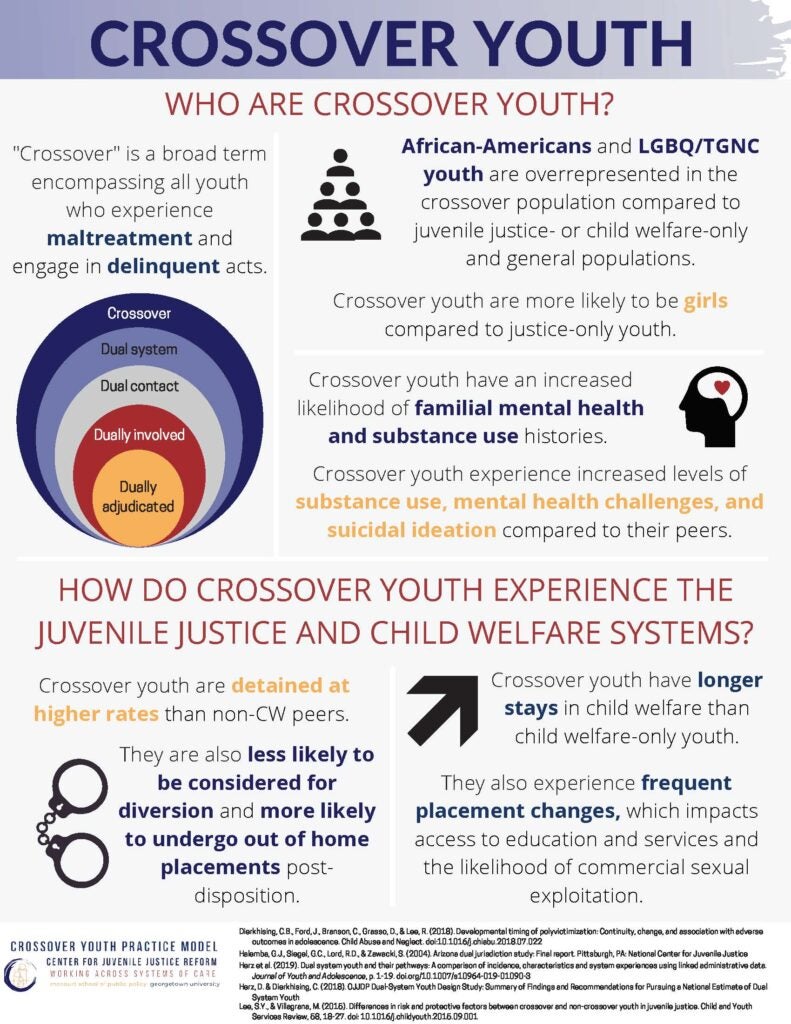2021 Janet Reno Forum
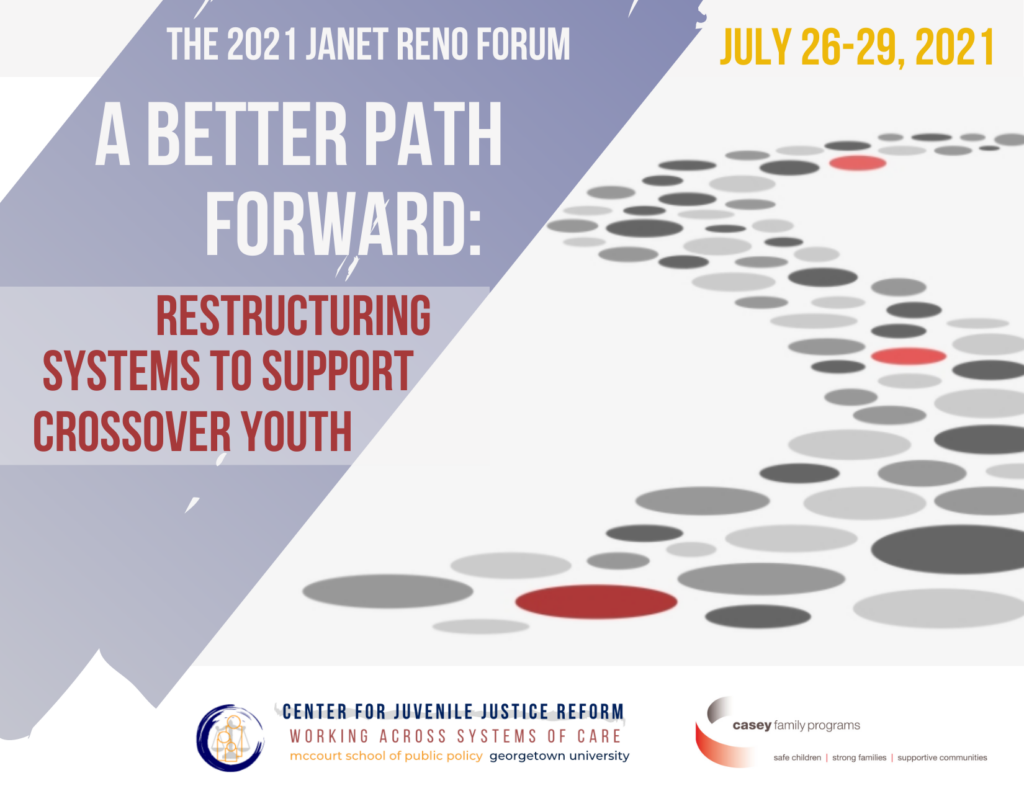
A Better Path Forward: Restructuring Systems to Support Crossover Youth
The Center for Juvenile Justice Reform, in partnership with Casey Family Programs, was delighted to host the 2021 Janet Reno Forum. The Forum explored the paths systems can take to support crossover youth—young people who are involved in the child welfare and juvenile justice systems.

From July 26 to July 29, we centered the experiences of youth and families impacted by the juvenile justice and child welfare systems through a virtual conference that allowed for national participation.
How can we restructure our systems to better support crossover youth?
Alongside a host of high-profile keynote speakers and expert presentations, we spotlighted opportunities for change in a series of topical sessions.
- Addressing the Needs of Youth sessions, we focused on the needs of commercially sexually exploited youth, youth of color, and LGBTQ+ youth.
- Building New Roads Between Systems sessions, we concentrated on the value of data, case practice, and leveraging the Family First Prevention Services Act.
- Using Experiences to Shape Systems sessions, we heard directly from staff, families, and young people about their experiences within juvenile justice and child welfare systems.

For more than a decade, the Center for Juvenile Justice Reform has collaborated with partners in 23 states and more than 120 jurisdictions to implement the Crossover Youth Practice Model.
The Forum leveraged this wealth of practical knowledge—and the voices of diverse practitioners and constituents across the country—to engage in a robust conversation on how to improve our youth- and family-serving systems. At the conclusion of the Forum, participants were prepared to take immediate steps toward helping our most vulnerable youth.

In the weeks and months leading up to the Forum, we released spotlight materials introducing the conference’s topics. You can find them below!
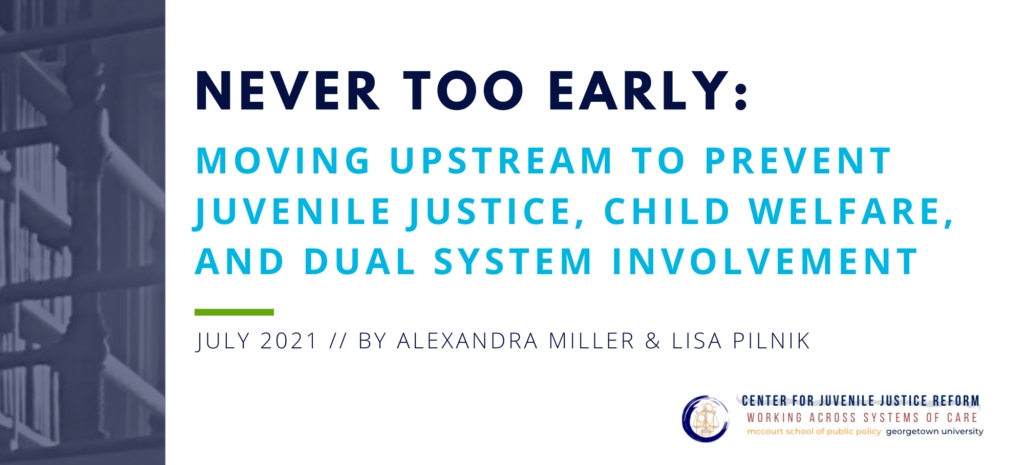
This week, we are proud to conclude our Crossover Spotlight Series with the release of a new publication!
The Center for Juvenile Justice Reform presents Never Too Early: Moving Upstream to Prevent Juvenile Justice, Child Welfare, and Dual System Involvement. In this publication, authors Alexandra Miller and Lisa Pilnik demonstrate that to prevent system contact, and to reduce repeated and deeper system involvement, we must support and work in true partnership with young people, families and communities.
Using the Crossover Youth Practice Model as an exemplar, the authors explore programs, strategies, and topics necessary to prevent single and dual system involvement.
You can view a preview of the paper below and download the full version here.
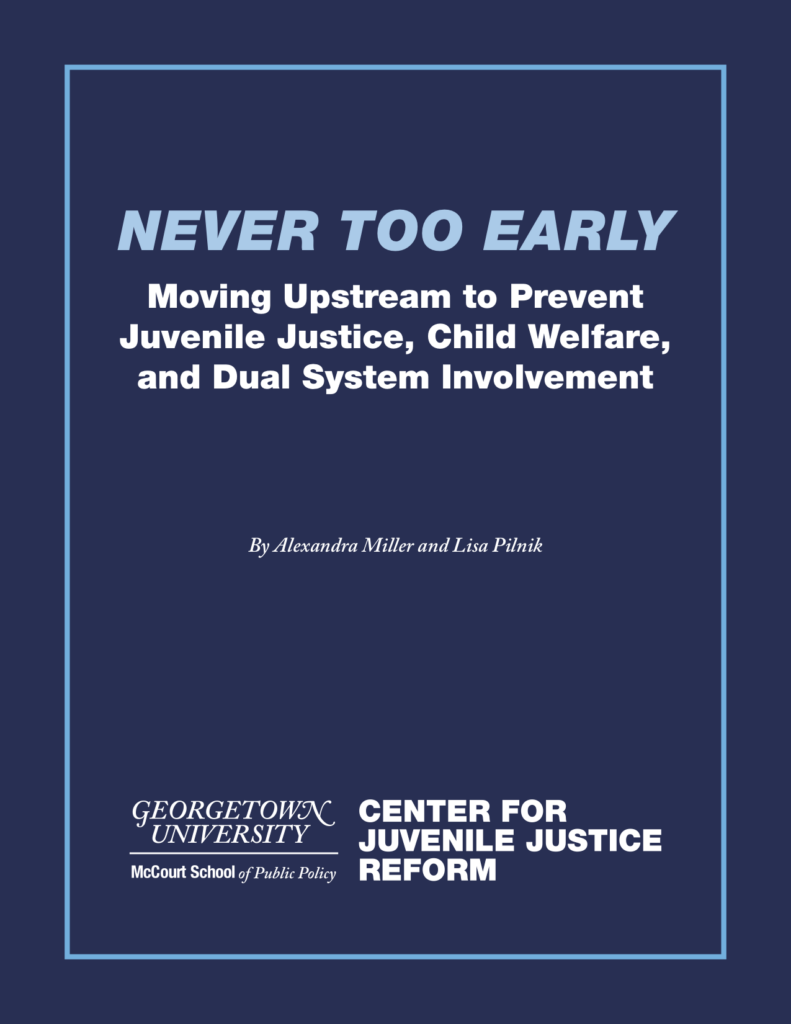
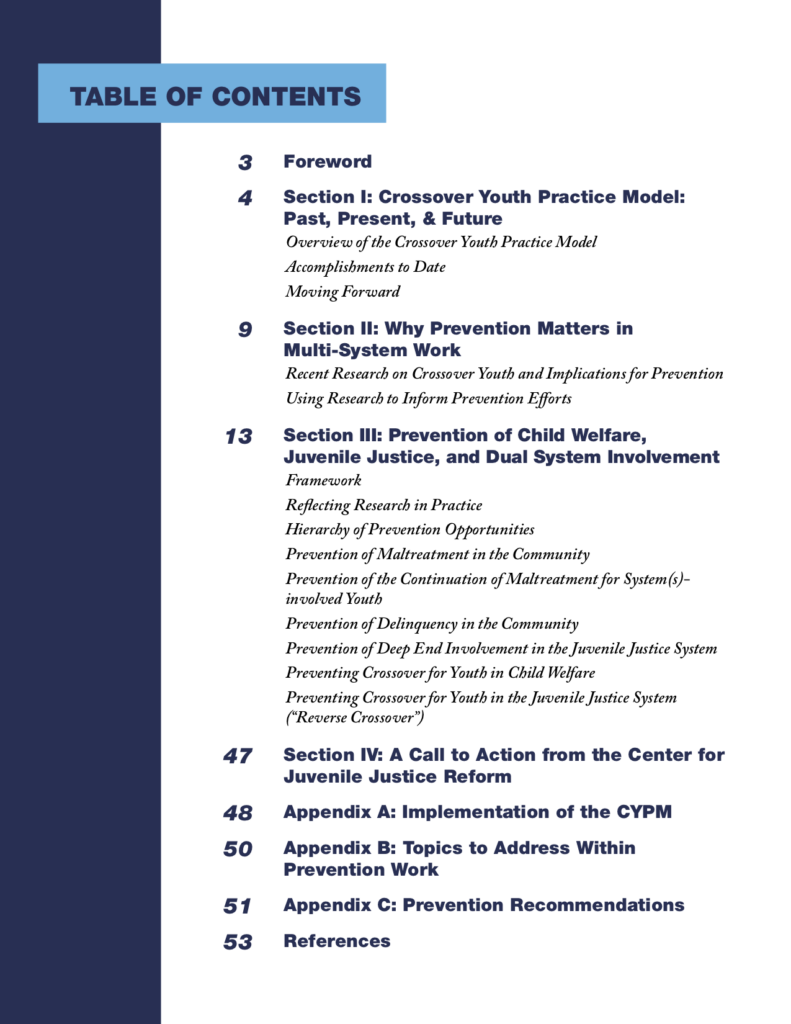
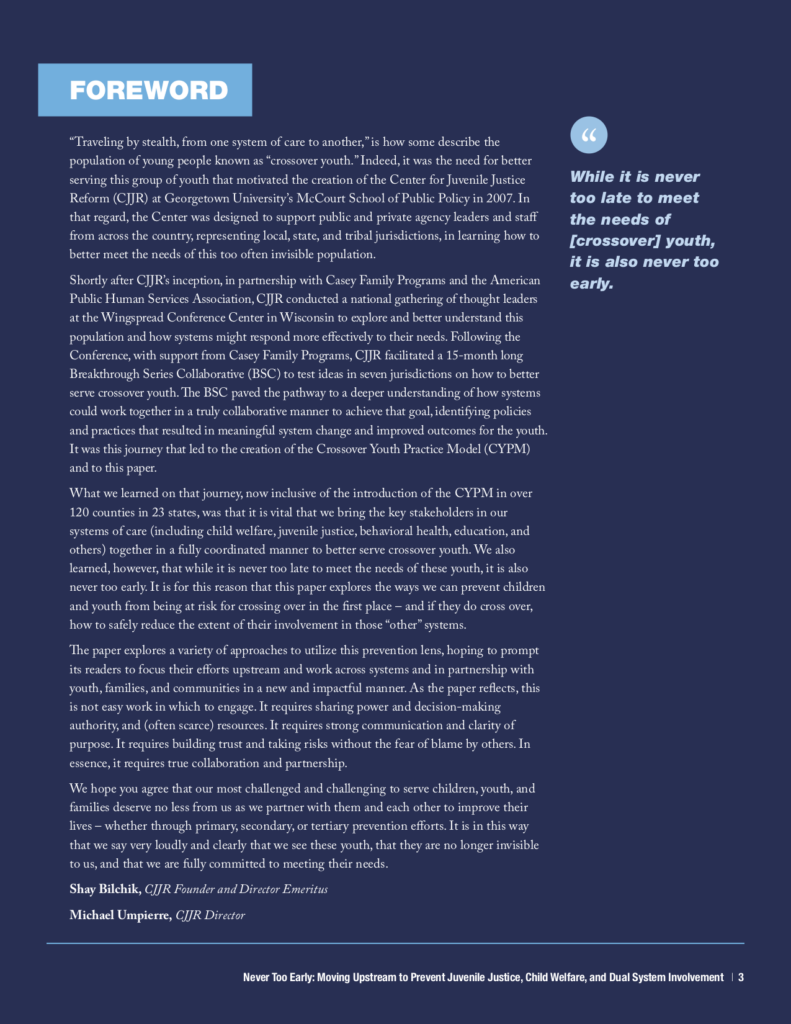
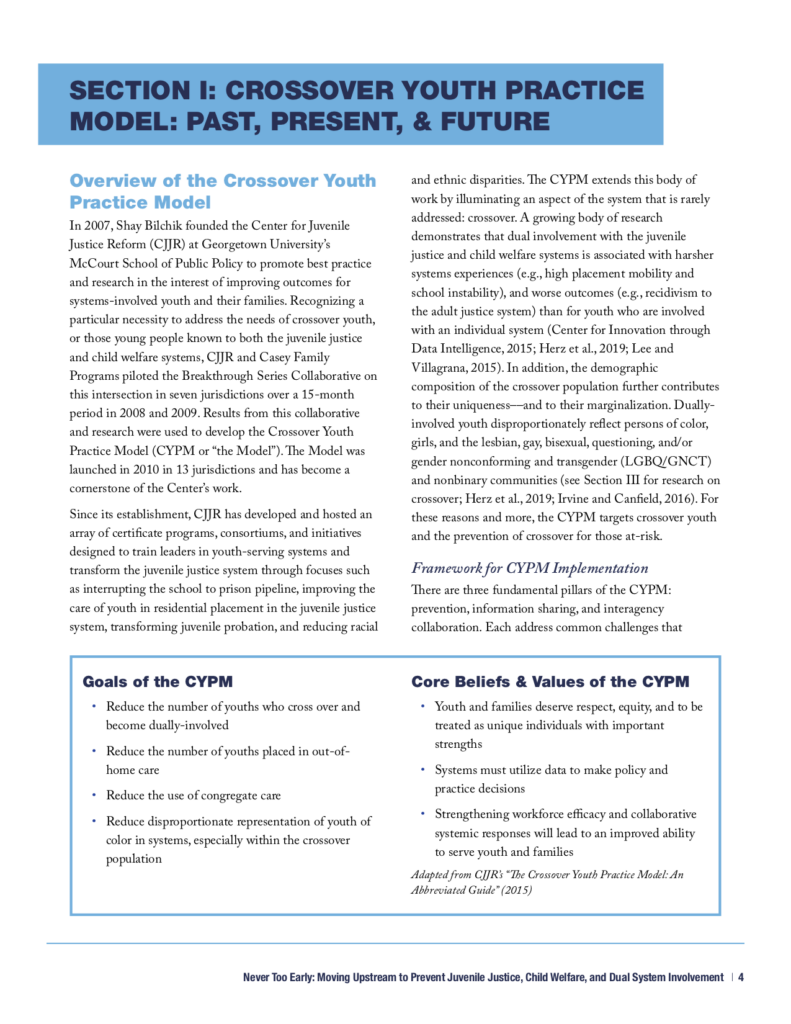
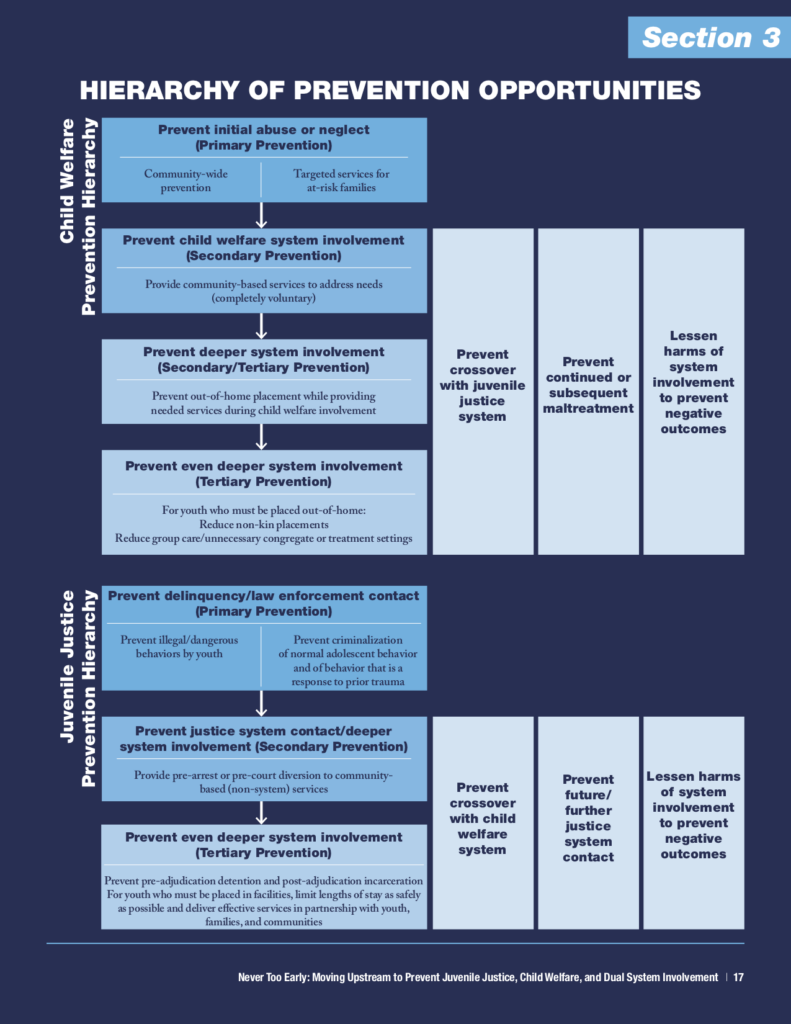

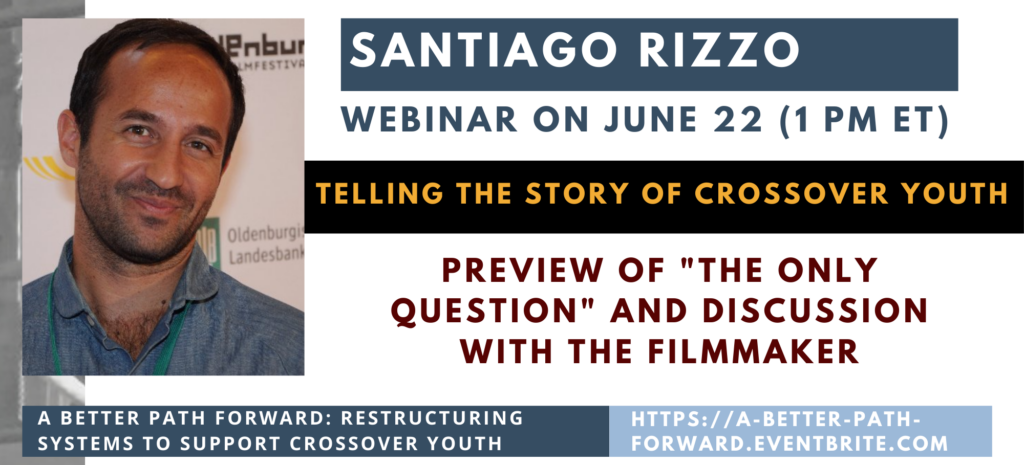
This week, we are pleased to share a new webinar related to crossover youth!
In this webinar, Michael Umpierre interviews filmmaker Santiago Rizzo about his childhood, his new film “The Only Question,” and how he hopes his work will change the national conversation around crossover youth.
After moving in with Tim Moellering at the age of 13, Santiago became an emancipated minor and Student Body President of Berkeley High School. In 2003, Santiago graduated with a 3.55 GPA from Stanford with a degree in Economics and a minor in Psychology. He then worked for Credit Suisse as an analyst in Institutional Equity Sales, as an analyst at Intrepid Capital and then became a portfolio manager at Straus Partners. When Tim’s pancreatic cancer metastasized, Santiago took a sabbatical from Wall Street to be with Tim during his final year in Berkeley where they both bought a home. During that year, Tim and Santiago finished writing a screenplay together. When Tim took his last breath on January 18, 2011, Santiago promised Tim he would make the script they wrote together into a movie. With the backing of his old boss, Mickey Straus, Santiago went back to NYC to launch an alternative energy hedge fund which he then shut down when Mickey died. He sold his home to raise the necessary funds and began this “Quest”. In May 2021, Santiago finished a recut of “Quest”, now titled “The Only Question”, to be shared with the world. You can watch his eulogy at Tim’s memorial here.

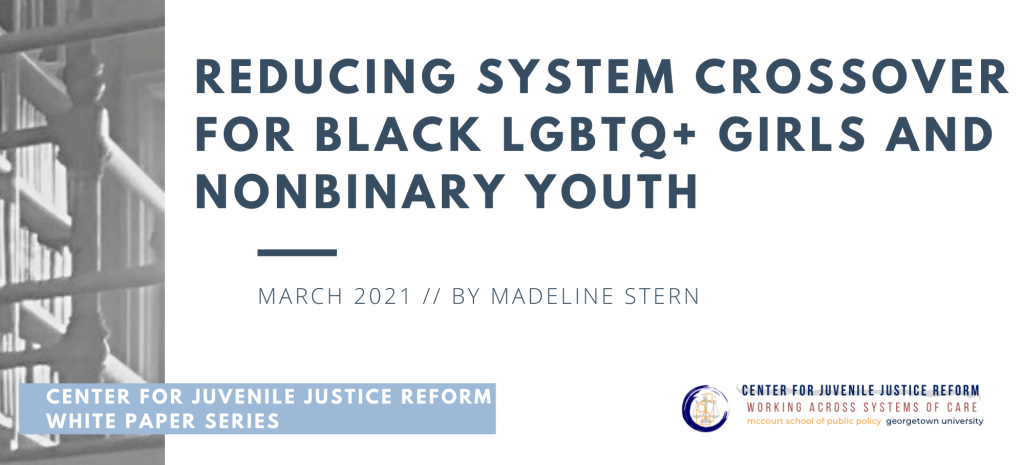
This week, we are proud to release a new research publication by Madeline Stern!
The 2021 Janet Reno Forum will explore how to restructure systems to better support crossover youth, centering the conversations on the experiences of youth and families impacted by the juvenile justice and child welfare systems. This includes dedicated Forum sessions examining how to best address the needs of youth, including commercially sexually exploited youth, youth of color, and LGBTQ+ youth.
In advance of these important discussions, this new CJJR publication highlights the critical need to ensure that systems fully support Black LGBTQ+ girls and nonbinary youth–a population that is at higher risk for crossover (i.e., becoming dually-involved in both the juvenile justice and child welfare systems) than their non-Black, non-LGBTQ+ peers.
The white paper also provides recommendations to mitigate this disparity and improve the experiences of and outcomes for this population of young people.
You can view a preview of the paper below, or download the publication here.
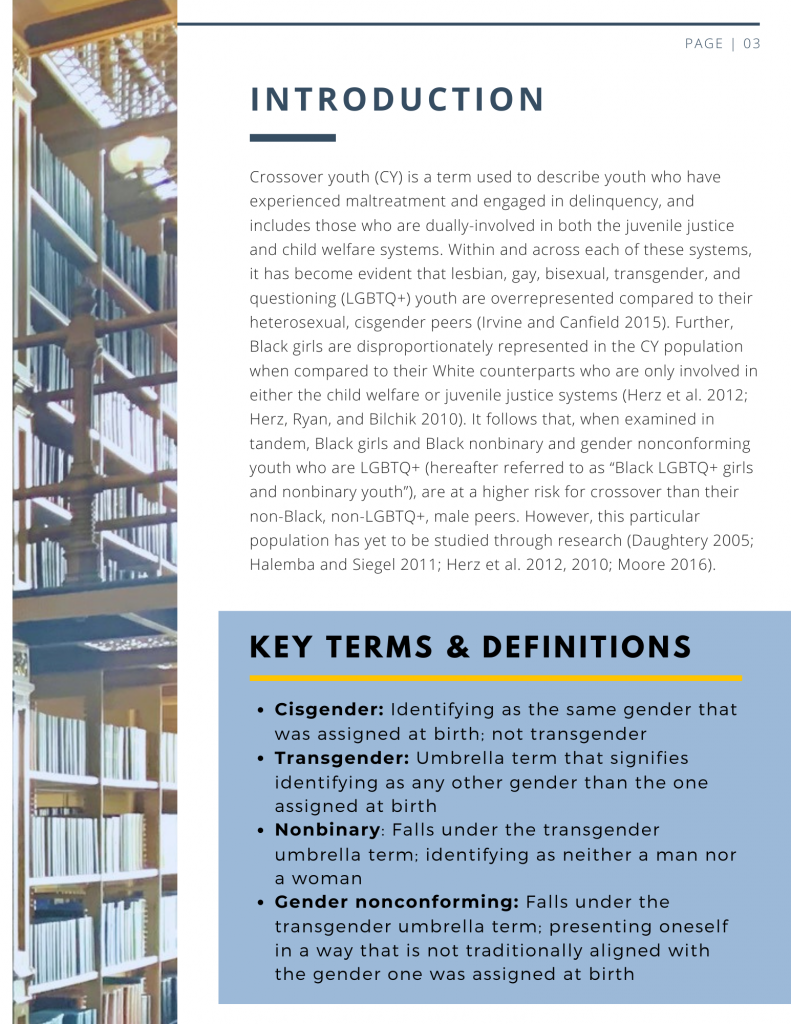
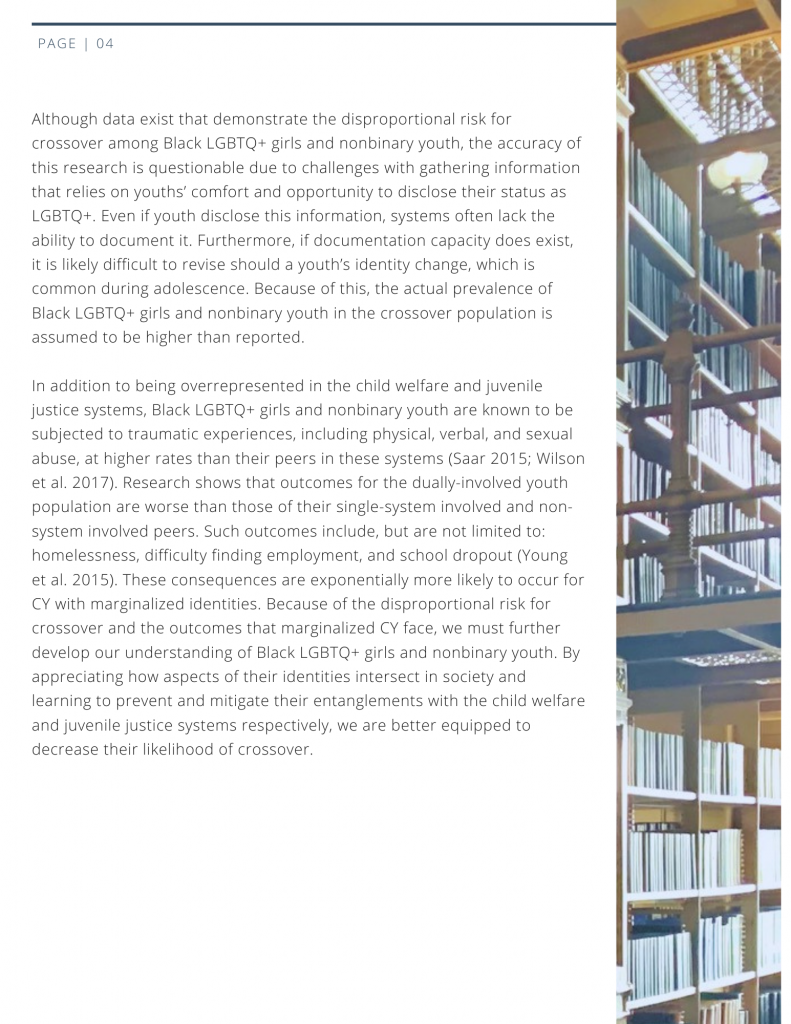
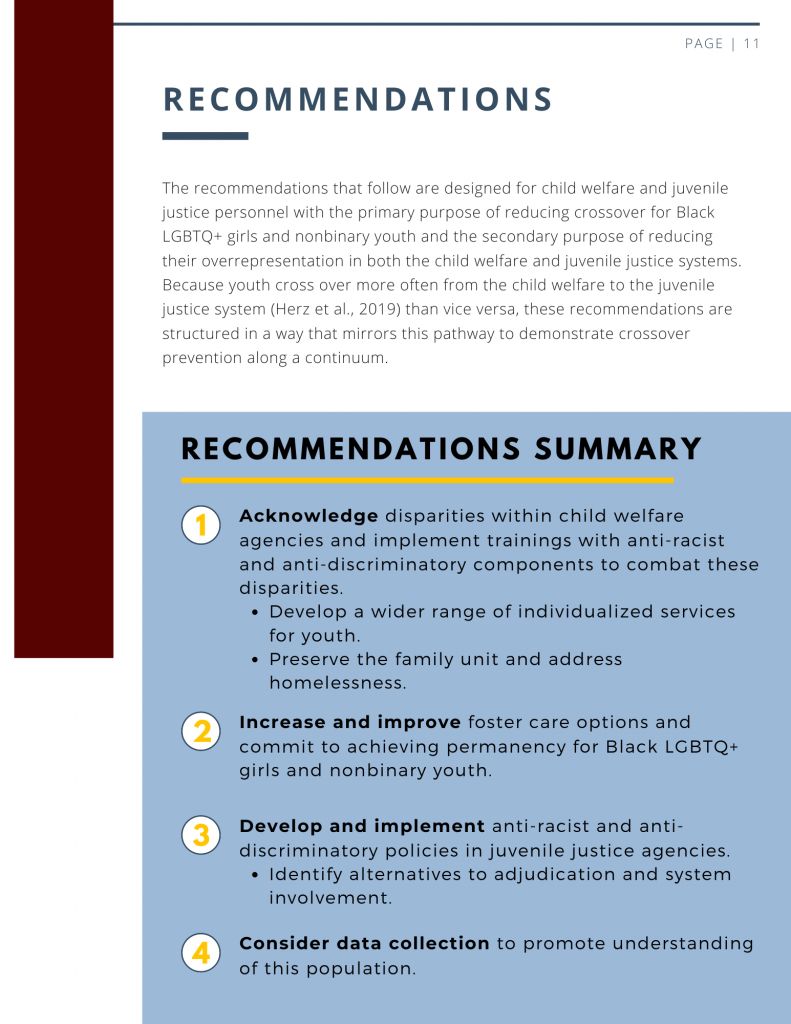
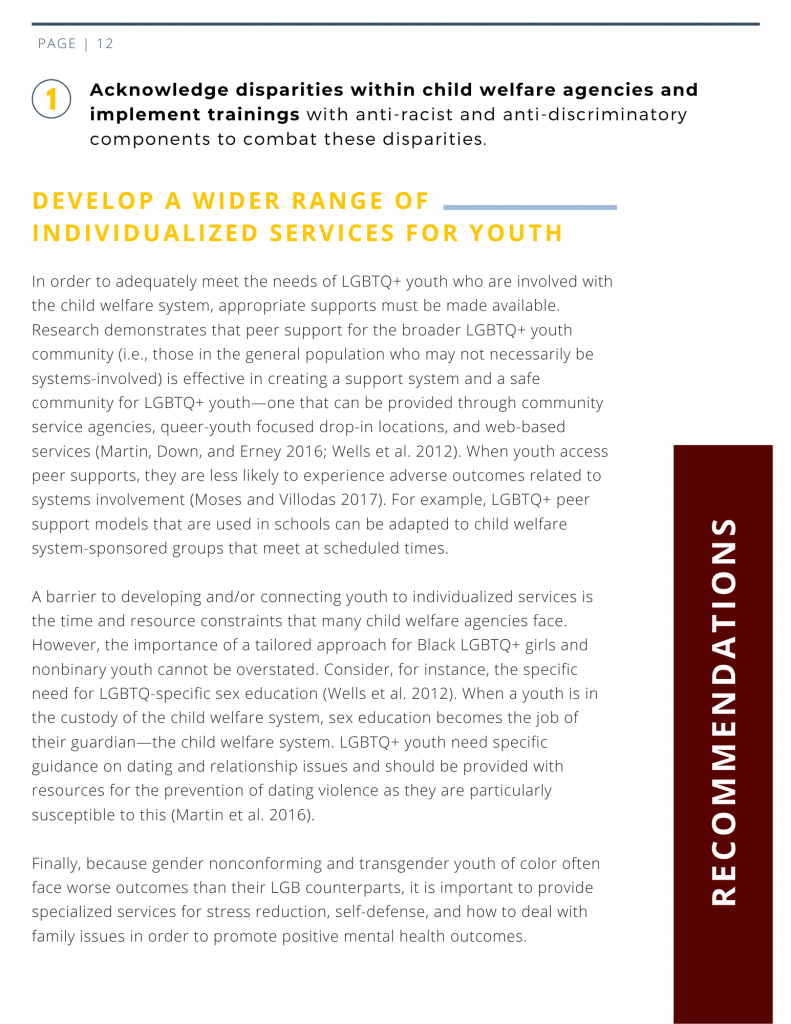
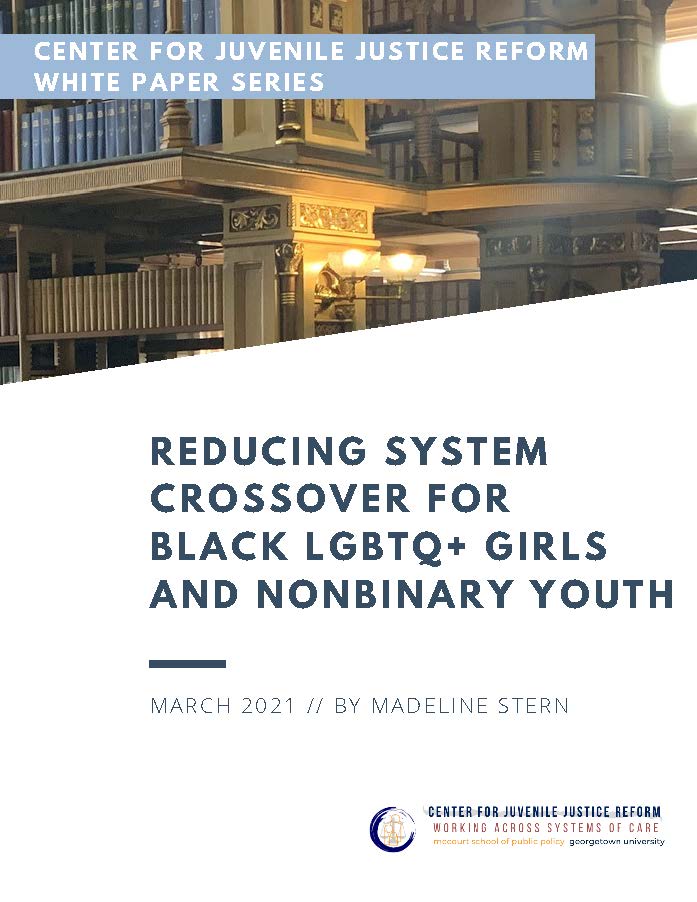

This week, we are proud to release a new Crossover Youth Spotlight Video on the efforts in the City of Alexandria, Virginia.
For nearly a year, communities have felt themselves depleted by the effects of COVID-19. The pandemic has caused many systems to triage their efforts, with all but the core functions of agencies being put on pause. Here, the Crossover Youth Practice Model (CYPM) team from the City of Alexandria, Virginia describes the ways in which their history of partnership, their strong leadership, and their multi-system planning for CYPM implementation have helped them maintain a focus on crossover youth, even during the COVID-19 pandemic. The team’s continued emphasis on system improvement for crossover youth underscores the imperative role that supportive leadership and personal connection play in achieving strong multi-system collaboration.


